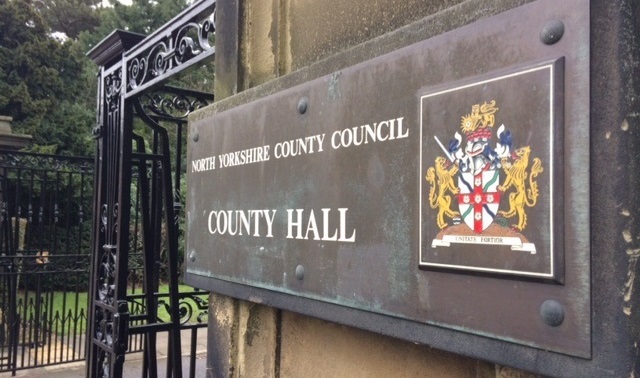
North Yorkshire County Council chiefs say the new unitary authority is facing a shortfall of more than £30 million despite getting more money from the Government.
North Yorkshire Council will get an extra £22m in additional funding from the Government for 2023/24, mainly to respond to an increase in social care costs and to assist in getting people out of hospitals more quickly.
However, council chiefs estimate that there will still be a shortfall of more than £30 million in the new council’s budget for the next financial year.
The authority says the majority of this will have to be covered by the one-off use of reserves as well as some savings.
The county council’s leader, Cllr Carl Les, welcomed the largest increase in funding from the Government in a decade, but stressed that the additional money would not be enough to counter the soaring rate of inflation which has had a dramatic impact on the authority’s finances.
He warned that millions of pounds in savings will still need to be made, although the massive overhaul of local government in North Yorkshire would help to ease financial pressures by streamlining services.
Alongside the highest rate of inflation for 40 years, council chiefs say the pressures on the country’s finances have been compounded by the aftershock of the Covid-19 pandemic as well as the ongoing effects of Britain’s exit from the European Union.
Cllr Les, who will assume the leadership of the new North Yorkshire Council, said: “We are faced with the biggest financial pressures which I have witnessed in all of the time I have been a member of the county council since I was elected more than 20 years ago.
“While the extra funding from the Government is extremely welcome, it will still not be enough to alleviate the extraordinary challenges which we do need to tackle in the coming financial year.
“The pressure on budgets will be felt across all of the directorates which provide key services for the hundreds of thousands of people who live and work in North Yorkshire.
“However, we are committed to ensuring that we can continue to provide the best possible services to the public in the face of these immense financial challenges.”
Significant overspends are already being reported in each of the county council’s service directorates.
For instance, the health and adult services directorate is being faced with huge pressure from increased demand, especially for adult social care as well as inflation, and its existing £7.9 million in contingency funding has already been allocated.
The Government has announced that nearly £18.5 million in grant funding will be given to North Yorkshire to ease the pressures on the county’s adult social care services.
It is estimated that the new authority will start the next financial year with a deficit of more than £18 million from the county council and seven district and borough councils, and the soaring inflation nationally and growing demand for services will have added an additional £50 million in costs.
The scale of the new North Yorkshire Council’s operations will see it have an overall spend of about £1.4 billion, including £343 million on schools.
Chancellor Jeremy Hunt announced in his Autumn Statement in November that councils will be given the power to increase council tax by up to five per cent, including additional social care funds.
Council tax is now the most important source of funding for council services in North Yorkshire, and each one per cent increase would raise £4 million towards meeting rising costs and demand.
However, Cllr Les said that he was acutely aware of the financial pressures that households in North Yorkshire are facing, and every effort would be made to ensure that they are given the support they need.
A policy to unify the provision of financial aid for council tax bills will now be adopted from the spring of next year when the new council is launched to cover the whole of North Yorkshire.
Councillors backed the proposals, which will provide up to 100 per cent reductions on council tax bills for households on the lowest incomes.


Be the first to comment